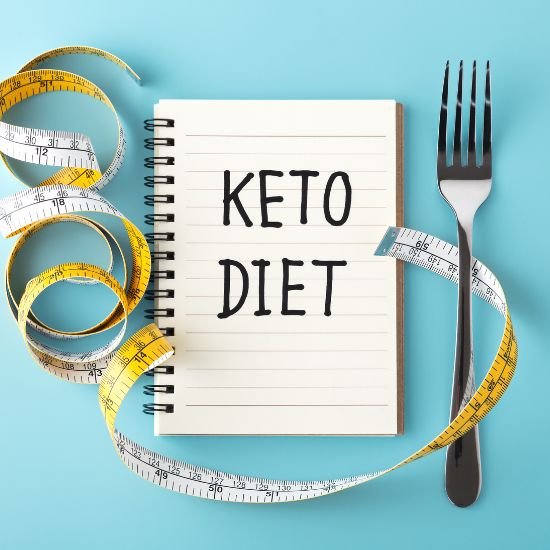
What are the benefits of Vitamin C Ascorbate ?
Share
Vitamin C Ascorbate Powder I Ascorbic acid ( Vitamin C) Benefits :
Vitamin C (also known as Ascorbic acid) is a water-soluble vitamin. Even before the discovery of this important Vitamin , physicians recognized that there must be a compound in citrus fruits preventing scurvy, a disease that killed many sailors a few 100 years ago. Later research & studies revealed that humans depend on external sources to cover their requirements of Vitamin C, while most animals are able to synthesize Vitamin C in their body (Ref.12 & 13).
Low levels of vitamin C have been associated with a number of cardiovascular disorders, including heart disease, hypertension, stroke, and atherosclerosis, as well as impaired immune function and some cancers. Intake of sufficient vitamin C may help reduce the risk of developing some of these conditions.
Vitamin C is required for the synthesis of collagen, an important structural component of connective tissue, blood vessels, ligaments, tendons , cartilage, skin, teeth ,gums and bones.
Ascorbic Acid (Vitamin C) plays an important role in the synthesis of the neurotransmitter, ‘norepinephrine’, critical to brain function and known to affect mood.
Studies & Research also suggests that Ascorbic acid (vitamin C) is involved in the metabolism of cholesterol to bile acids, which may have implications for blood cholesterol levels and the incidence of gallstones (Ref.1).
It is a highly effective antioxidant. Even in small amounts Ascorbic acid (vitamin C) can protect essential molecules in the body such as proteins, lipids, carbs , & nucleic acids (DNA & RNA) from damage by free radicals (reactive oxygen species) that can be generated during normal metabolism as well as through exposure to toxins & pollutants (For example - smoking).
Vitamin C (Ascorbic acid) may also be able to regenerate other antioxidants such as Vitamin E (Ref.2).
Furthermore, Ascorbic acid (vitamin C) plays an essential role in immune function, which is impaired by insufficient supply and re-established through supplementation (Ref.3 &4) .
Vitamin C exerts its effect via the promotion of T-cell maturation (Ref.5) & for the circulating immune cells, which have twenty to sixty 60 times higher vitamin C concentration than the surrounding plasma (Ref. 6 & 7), it improves the motility of the neutrophil leukocytes (Ref. 8 & 9).
Additionally , vitamin C is required for the synthesis of carnitine, a small molecule that is necessary for the transport of fat to cellular mitochondria for conversion to energy (Ref. 10).
The European Food Safety Authority (EFSA) (Ref.11), which provides scientific advice to assist policy makers, has confirmed that clear health benefits have been established for the dietary intake of vitamin C in contributing to:
- the protection of cell constituents from oxidative damage;
- normal collagen formation & the normal function of blood vessels, skin, bones, cartilage, gums and teeth;
- the normal function of the nervous system;
- the increase of non-heme iron absorption
- a normal function of the immune system; normal energy-yielding metabolism;
- the maintenance of the normal function of the immune system during & after intense physical exercise;
- the regeneration of the reduced form of vitamin E;
- the reduction of fatigue & tiredness .
- normal psychological functions
1.Simon JA, Hudes ES. Serum ascorbic acid and gallbladder disease prevalence among US adults: the Third National Health and Nutrition Examination Survey (NHANES III). Arch Intern Med. 2000; 160(7):931–936.
2.Carr AC, Frei B. Toward a new recommended dietary allowance for vitamin C based on antioxidant and health effects in humans. Am J Clin Nutr. 1999; 69(6):1086–1107.
3.Wintergerst, E.S.; Maggini, S.; Hornig, D.H. Immune-enhancing role of vitamin C and zinc and effect on clinical conditions. Ann. Nutr. Metab. 2006, 50, 85–94; doi:10.1159/000090495
4.Pike, J.; Chandra, R.K. Effect of vitamin and trace element supplementation on immune indices in healthy elderly. Int. J. Vitam. Nutr. Res. 1995, 65, 117–121
5.Manning, J.; Mitchell, B. et al. Vitamin C promotes maturation of T-cells. Antioxid. Redox Signal. 2013, 19, 2054–2067; doi:10.1089/ars.2012.4988
6.Washko, P.; Rotrosen, D.; Levine, M. Ascorbic acid transport and accumulation in human neutrophils. J. Biol. Chem. 1989, 264, 18996–19002
7.= 50. Levine, M.; Conry-Cantilena, C.; Wang, Y.; Welch, R.W.; Washko, P.W.; Dhariwal, K.R.; Park, J.B.; Lazarev, A.; Graumlich, J.F.; King, J.; et al. Vitamin C pharmacokinetics in healthy volunteers: Evidence for a recommended dietary allowance. Proc. Natl. Acad. Sci. USA 1996, 93, 3704–3709
8.Schwager, J.; Bompard, A.; Weber, P.; Raederstorff, D. Ascorbic acid modulates cell migration in differentiated HL-60 cells and peripheral blood leukocytes. Mol. Nutr. Food Res. 2015, 59, 1513–1523; doi10.1002/mnfr.201400893
9.Bozonet, S.M.; Carr, A.C.; Pullar, J.M.; Vissers, M.C. Enhanced human neutrophil vitamin C status, chemotaxis and oxidant generation following dietary supplementation with vitamin C-rich sungold kiwifruit. Nutrients 2015, 7, 2574–2588; doi:10.1159/000434757
10.Carr AC, Frei B. Toward a new recommended dietary allowance for vitamin C based on antioxidant and health effects in humans. Am J Clin Nutr. 1999; 69(6):1086–1107.
11.EFSA NDA Panel. Scientific opinion on the substantiation of health claims related to vitamin C and protection of DNA, proteins and lipids from oxidative damage (ID 129, 138, 143, 148), antioxidant function of lutein (ID 146), maintenance of vision (ID 141, 142), collagen formation (ID 130, 131, 136, 137, 149), function of the nervous system (ID 133), function of the immune system (ID 134), function of the immune system during and after extreme physical exercise (ID 144), non-haem iron absorption (ID 132, 147), energy-yielding metabolism (ID 135), and relief in case of irritation in the upper respiratory tract (ID 1714, 1715) pursuant to article 13(1) of regulation (EC) No 1924/2006. EFSA J. 2009, 7, 1226; doi:10.2903/j.efsa.2009.1226
12. Levine, Mark, et al. Determination of optimal vitamin C requirements in humans. American Journal of Clinical Nutrition, 1995; 62:1347–56.
13.Padyatty S.F., Levine M. (2016) Vitamin C: the known, the unknown, and Goldilocks. Oral Diseases (2016) doi:10.1111/odi.12446

















